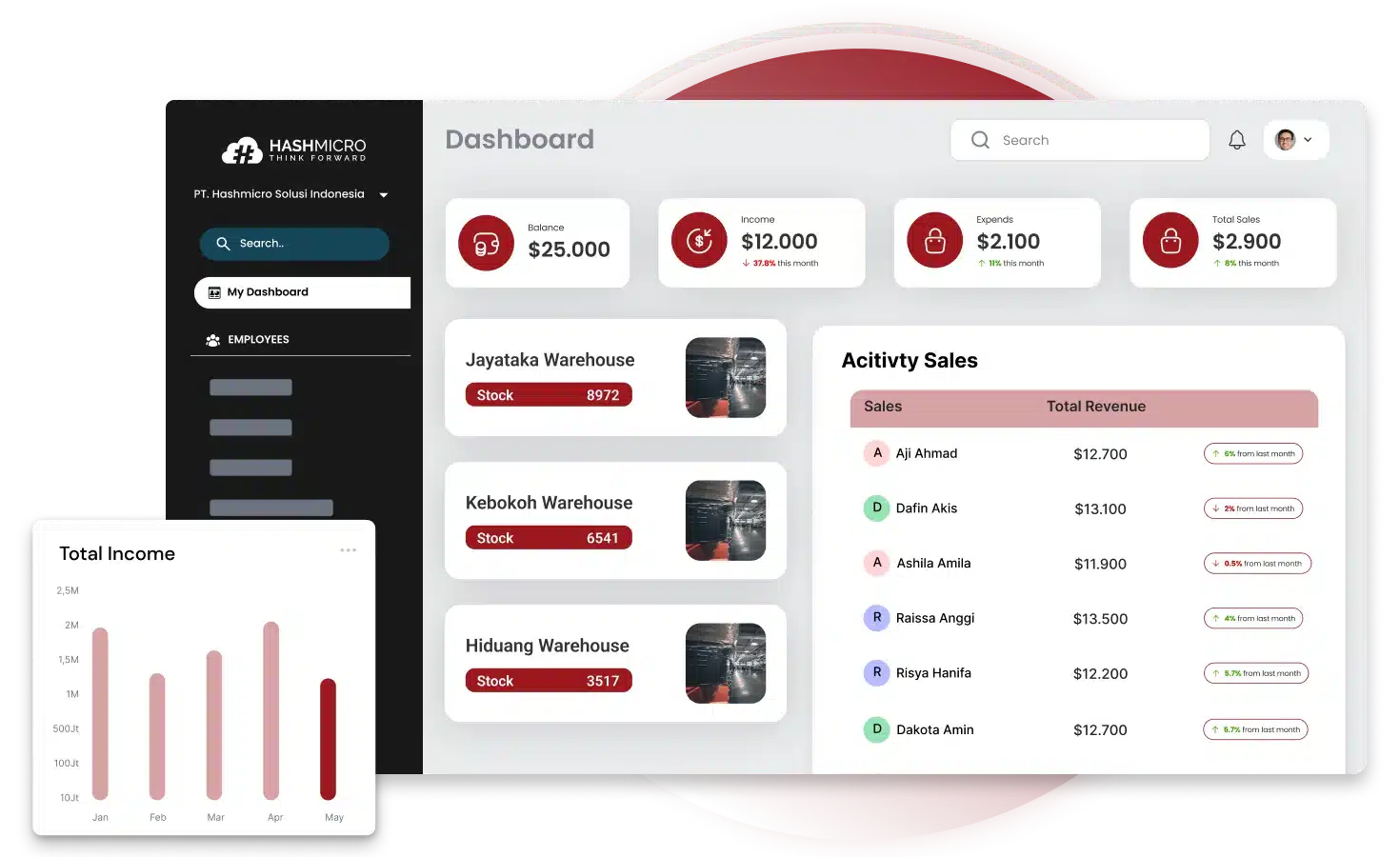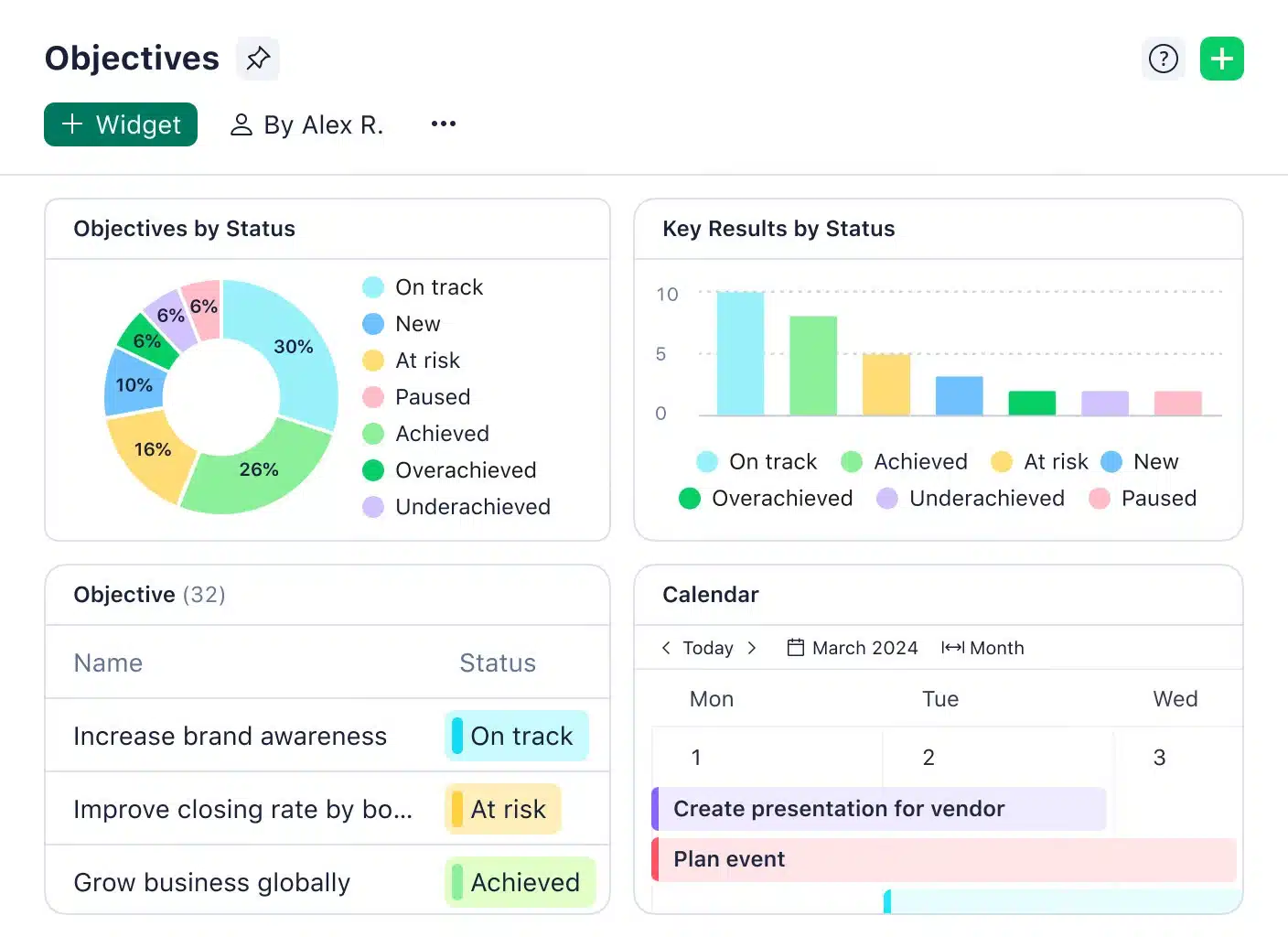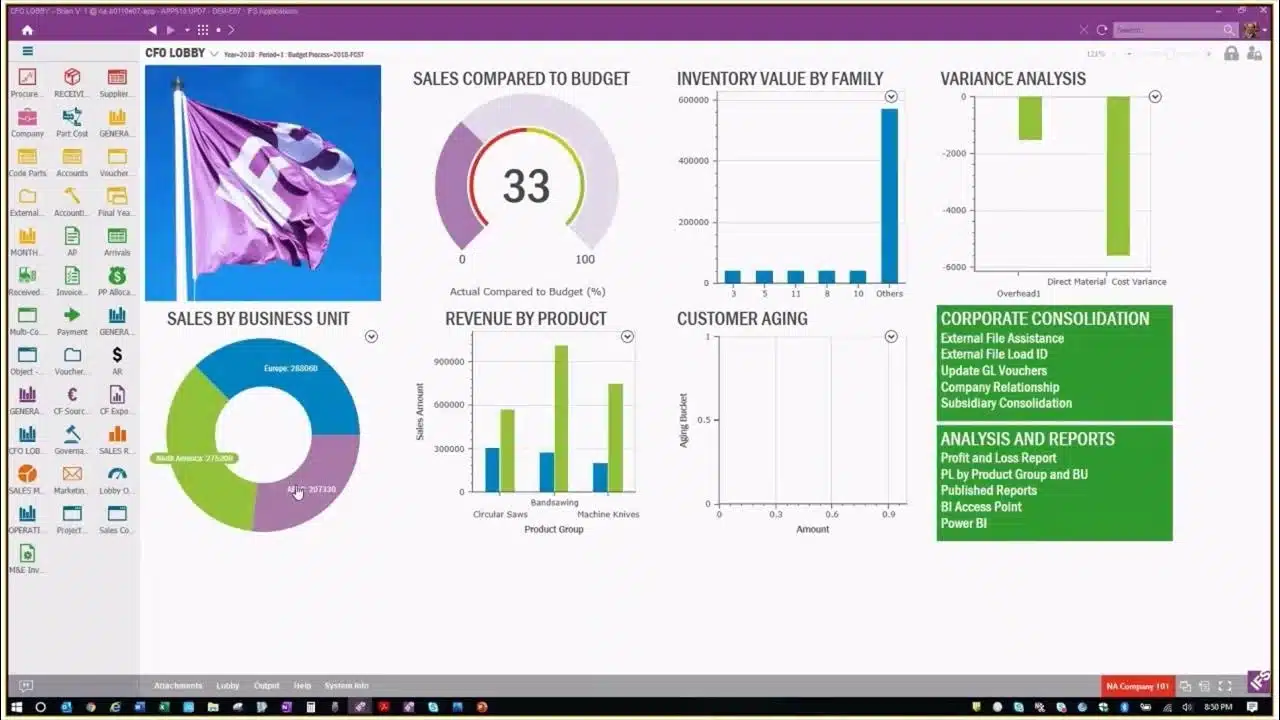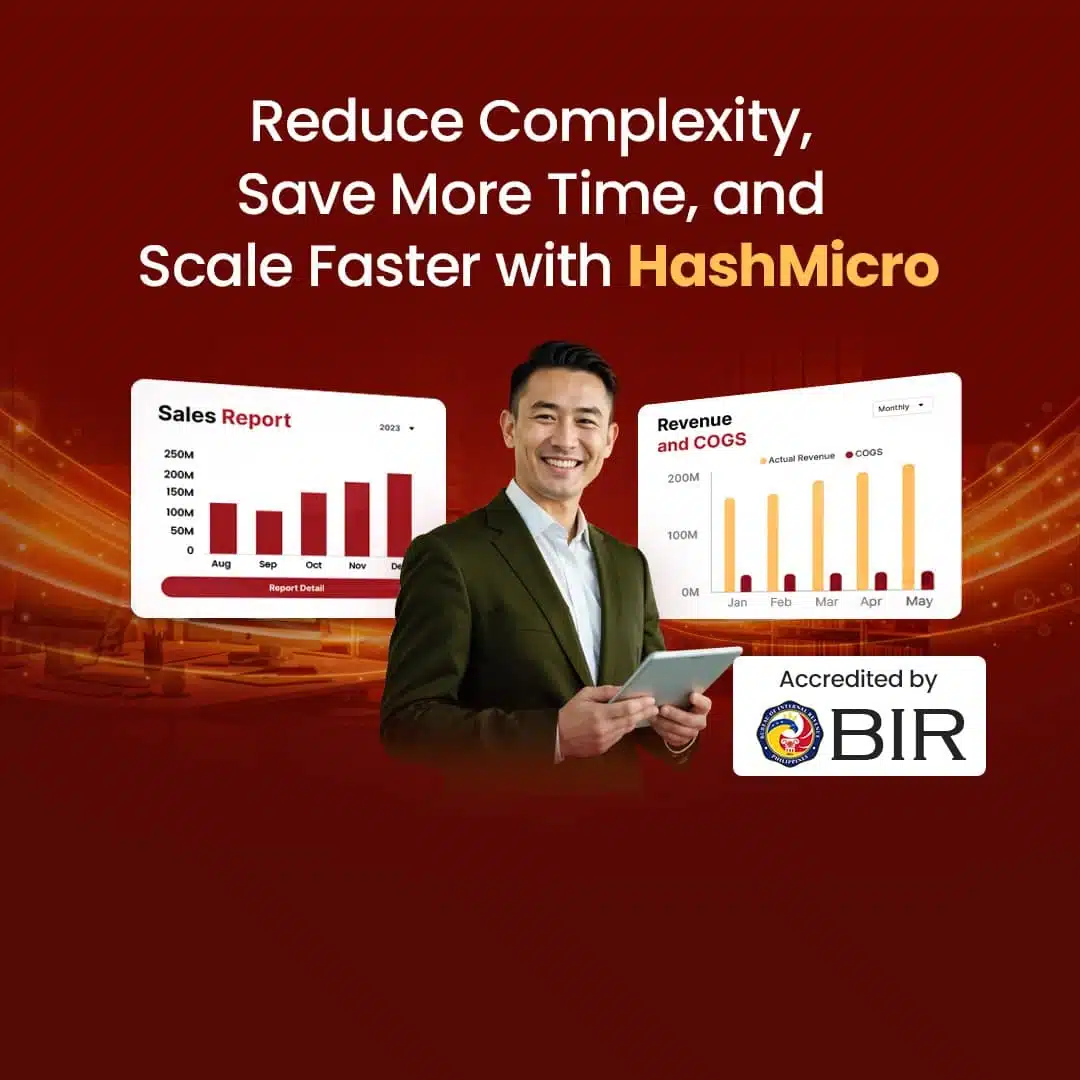Did you know that ERP hotel technology is now used by the majority of hoteliers in the Philippines? No wonder hotel ERP plays a vital role in automating the room booking process, integrating with financial reports, and providing many other conveniences.
However, given the many options available, choosing the right ERP solution for the industry can be challenging. The best ERP software for the hospitality industry should be a comprehensive, user-friendly, and data-driven platform that enhances operational efficiency guest satisfaction, and drives business growth.
This article will explore hotel ERP systems and recommend seven of the best ERP solutions for the hospitality industry. Continue reading to learn more about the top choices for businesses in the Philippines.
Key Takeaways
|
Table of Contents
What is an ERP Hotel System?
An ERP hotel is a comprehensive management solution designed to streamline and automate various hotel or hospitality business processes. It integrates departments such as reservations, front desk operations, housekeeping, inventory management, and accounting into a unified platform.
This system allows businesses to efficiently manage daily operations, enhance guest experiences, optimize resources, and gain valuable insights from data analysis. With a centralized platform, a hotel ERP system improves operational efficiency and supports better decision-making.
Benefits of Utilizing a Hotel ERP System
Implementing a hotel ERP system has numerous advantages. First, it streamlines critical operations, such as reservations and housekeeping, improving efficiency and reducing errors. Second, it enhances the guest experience by allowing hotels to offer personalized services based on guest preferences and history.
Third, ERP hotel software provides valuable data and analytics, enabling hotel managers to identify trends, optimize pricing, and make strategic decisions that enhance performance. These benefits make a hotel ERP system an essential tool for hospitality businesses in the Philippines.
Top 8 ERP Hotel Systems for Businesses in the Philippines
Below are eight carefully selected ERP software Philippines, each offering unique strengths to meet the diverse needs of the hospitality sector.
1. HashMicro ERP Hotel
 Why we choose it: HashMicro ERP offers a comprehensive suite tailored to meet the specific needs of the hospitality industry in the Philippines.
Why we choose it: HashMicro ERP offers a comprehensive suite tailored to meet the specific needs of the hospitality industry in the Philippines.
Founded in Singapore in 2015, HashMicro has expanded its presence across Southeast Asia, including the Philippines. The company’s ERP hotel is designed to streamline booking or reservation processes and enhance reporting in one system.
It offers deep integration with various modules and a free demo, making it an ideal choice for growing hotel companies. HashMicro also provides the latest advanced, AI-based, and comprehensive features. Here are some of them.
Key features:
- Online booking management: Provide convenience to customers when making a reservation and give them options if no reservations are available.
- Timeslot management: Automate meeting schedules with customers with timeslots to help your staff arrange their schedules.
- Appointment request: Make it easy for customers to request an appointment and be notified when there’s one available.
- Online reminders: Avoid cancellation with online reminders. Serve your customers well & professionally.
- ROI tracking: Track the occupancy rate of each item/service for easier ROI calculation.
- Multi-tiered pricelist: Improve your sales by providing various package options with attractive pricing.
| Pros | Cons |
| Unlimited users | It is more suited for medium to large businesses due to its comprehensive features. |
| Comply with local regulations in the Philippines | |
| Excellent customer support | |
| Easy integration with third-party apps | |
| Customizable to specific needs | |
| Strong localization for Southeast Asia |
2. Oracle Hospitality System
Why we choose it: Oracle is a global leader in technology solutions, and its hospitality system offers deep industry expertise.
With a rich history in providing enterprise solutions, Oracle’s ERP system is designed for large-scale operations with complex needs. Known for its high scalability and robust cloud-based architecture, Oracle helps hotel businesses manage reservations, housekeeping, revenue, and restaurant operations.
Key features:
- Comprehensive property management
- Dynamic pricing and revenue management
- Integrated restaurant and bar management
- Cloud-based architecture with solid security
| Pros | Cons |
| Highly scalable | The steep learning curve for new users |
| Superior integration capabilities | Higher cost of implementation |
| Excellent customer support | Complex setup requires external assistance |
| Robust security features | Limited customization without consultants |
3. Sage Intacct
Why we choose it: Sage Intacct is known for its advanced financial management capabilities, making it a standout for hotel businesses focused on optimizing their finances.
Sage Intacct’s cloud-based ERP hotel management system is powerful in accounting and financial management, offering in-depth visibility into your hotel’s finances. Real-time reporting and analytics help hotel managers make well-informed decisions.
Key features:
- Real-time financial visibility
- Budgeting and forecasting tools
- Multi-entity management
- Seamless integration with third-party apps
| Pros | Cons |
| Excellent financial management | Focused heavily on finance, limited HR features |
| Multi-entity support for chains | Not as user-friendly as other platforms |
| Customizable dashboards | Long implementation process |
| Highly reliable customer service | Integration issues with non-financial tools |
4. Wrike
 Why we choose it: Wrike stands out with its project management focus, ideal for hotels undergoing extensive renovations or opening new locations.
Why we choose it: Wrike stands out with its project management focus, ideal for hotels undergoing extensive renovations or opening new locations.
Wrike is not your typical hotel ERP, but its project management capabilities make it valuable for hotels managing multiple projects simultaneously. It’s perfect for teams collaborating across departments, especially in larger hotels or hotel groups with expansion plans.
Key features:
- Real-time collaboration tools
- Task automation
- Visual project timelines (Gantt charts)
- Custom workflows
| Pros | Cons |
| Easy-to-use project management | Lacks built-in hospitality-specific features |
| Excellent task automation | Requires third-party integrations for hotel operations |
| Mobile-friendly interface | Limited financial management tools |
| Scalable for large projects | It is not ideal for small-scale hotel businesses |
5. Hotel Investor Apps
Why we choose it: Hotel Investor Apps provides a full suite of financial and property management tools tailored explicitly for hotel businesses.
Hotel Investor Apps (HIA) is designed exclusively for the hotel industry, focusing on streamlining accounting and property management tasks. It offers cloud-based solutions that integrate seamlessly with key hotel functions, allowing for efficient management of reservations, housekeeping, and even employee scheduling.
Key features:
- Property management integration
- Automated financial workflows
- Employee scheduling management
- Comprehensive reporting tools
| Pros | Cons |
| Industry-specific functionalities | Can be too specialized for non-hotel businesses |
| Great for financial management | Limited customization options |
| Seamless integration with PMS | UI design is a bit dated |
| Real-time analytics | Some features require additional costs |
6. Acumatica
Why we choose it: Acumatica offers a robust, cloud-based ERP solution with solid customization and scalability.
Acumatica provides a flexible ERP hotel management system designed for businesses of all sizes. With a focus on customization, Acumatica allows hotel managers to tailor the system to their specific operational needs.
Key features:
- Customizable reporting and dashboards
- Advanced financial management
- CRM integration
- Mobile application
| Pros | Cons |
| Highly customizable | Initial setup requires significant effort |
| Easy-to-use interface | Some features require third-party integrations |
| Great mobile app support | Customer service response times vary |
| Strong financial tools | Can be costly for complex customizations |
7. IFS Applications
 Why we choose it: IFS Applications is known for its advanced asset management capabilities, which are ideal for hotels with an extensive portfolio of physical assets.
Why we choose it: IFS Applications is known for its advanced asset management capabilities, which are ideal for hotels with an extensive portfolio of physical assets.
IFS Applications is a global player in the ERP hotel software and is highly regarded for its strong asset management tools. The platform integrates various functions like financials, HR, and inventory management, and its focus on asset management allows hotel owners to track and optimize the use of resources effectively.
Key features:
- Asset lifecycle management
- Workforce management tools
- Financial and HR integration
- Real-time analytics
| Pros | Cons |
| Excellent asset management | Overly complex for smaller hotels |
| Real-time data insights | Expensive compared to competitors |
| Strong inventory management | Requires specialized training |
| Customizable workflows | Integration with legacy systems can be difficult |
8. Cloudbeds
Why we choose it: Cloudbeds provides an all-in-one hotel property management solution.
Cloudbeds is a cloud-based platform that offers a comprehensive suite of tools to manage reservations, payments, room availability, and guest communications all in one place. Built with the hotel industry in mind, it’s designed to enhance operational efficiency and guest satisfaction.
Key features:
- Centralized reservation management
- Guest communication tools
- Payment processing integration
- Availability and rate management
| Pros | Cons |
| User-friendly interface | Limited reporting features |
| Great for guest management | Customer service can be slow during peak times |
| Seamless OTA integration | Lacks advanced HR management tools |
| Supports multiple payment methods | The mobile app needs improvement |
Also read: 17 Best Property Management Software in Philippines 2025
Conclusion
In summary, selecting the right ERP hotel management system for the hospitality industry is a critical decision that directly impacts operational efficiency, guest satisfaction, and overall success. By carefully evaluating the features of each solution, businesses can choose an ERP hotel software that best meets their specific needs and goals.
Ultimately, a hotel ERP system is a strategic investment that boosts efficiency, profitability, and guest satisfaction. HashMicro’s ERP hotel offers a powerful solution for long-term success in the competitive hospitality market. Schedule a free demo today to explore the possibilities for your business.

FAQ About ERP Hotel
-
What is ERP Philippines?
ERP Philippines is an integrated system that streamlines core business processes, such as accounting, inventory, and HR. It helps local companies improve efficiency and compliance.
-
What is the purpose of ERP?
The purpose of ERP (Enterprise Resource Planning) is to integrate and streamline core business processes, such as finance, HR, inventory, and supply chain into a unified system. This integration improves data accuracy, enhances decision-making, boosts efficiency, and enables real-time visibility across departments, ultimately helping organizations operate more effectively and reduce operational costs.
-
Is ERP easy to use?
ERP systems vary in usability; modern solutions are often user-friendly, but some training may be needed to fully utilize their features effectively.
{
“@context”: “https://schema.org”,
“@type”: “FAQPage”,
“mainEntity”: [{
“@type”: “Question”,
“name”: “What is ERP Philippines?”,
“acceptedAnswer”: {
“@type”: “Answer”,
“text”: “ERP Philippines is an integrated system that streamlines core business processes, such as accounting, inventory, and HR. It helps local companies improve efficiency and compliance.”
}
},{
“@type”: “Question”,
“name”: “What is the purpose of ERP?”,
“acceptedAnswer”: {
“@type”: “Answer”,
“text”: “The purpose of ERP (Enterprise Resource Planning) is to integrate and streamline core business processes, such as finance, HR, inventory, and supply chain into a unified system. This integration improves data accuracy, enhances decision-making, boosts efficiency, and enables real-time visibility across departments, ultimately helping organizations operate more effectively and reduce operational costs.”
}
},{
“@type”: “Question”,
“name”: “Is ERP easy to use?”,
“acceptedAnswer”: {
“@type”: “Answer”,
“text”: “ERP systems vary in usability; modern solutions are often user-friendly, but some training may be needed to fully utilize their features effectively.”
}
}]
}




































